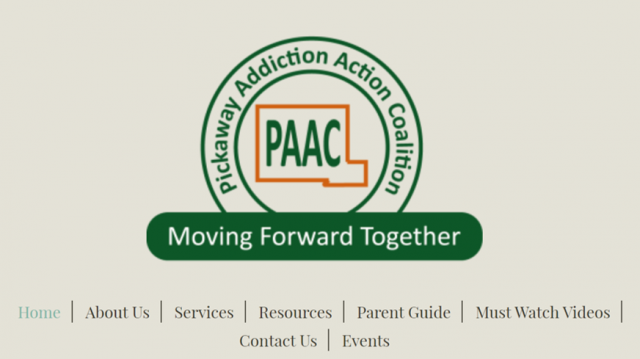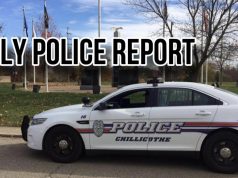
Pickaway – Pickaway – National Prevention Week is from May 12-18, 2024 we reached out to one of the local experts to talk about this important week
In a recent interview, Susan Metzger, PAAC Community Engagement Coordinator, shed light on the significance of National Prevention Week and the ongoing efforts to promote mental health awareness and access to resources within the community.
“Sometimes when people ask me about my work, I clarify that while I do work for Pickaway Addiction Action Coalition, a nonprofit organization within the community, our focus isn’t solely on individuals struggling with addiction. Our primary mission is to reduce substance abuse disorders and associated fatalities in our community, both among adults and youth, said Metzger.
Susan emphasized the pivotal role of organizations like the Substance Abuse and Mental Health Services Administration (SAMHSA) in facilitating initiatives such as May is Mental Health Month. Utilizing resources provided by SAMHSA and the Centers for Disease Control and Prevention (CDC), Susan highlighted the importance of promoting mental wellness and advocating for the availability of support services.
“May is Mental Health Month, just to make the awareness within the community and to say, Hey, it’s okay not to be okay. There are services available from agencies, businesses, and practitioners, said Metzger, “we’re just trying to do things within the community and provide some resources, most which can be found online such as how to check in with yourself, are you taking time with yourself, and even just this afternoon, a webinar that I was listening to, had to do with youth and mental health. The key takeaway points of the webinar were to reduce that screen time, make sure you’re eating healthy, get exercise, and get sleep. Those are some critical things to make yourself healthy, whether it be for youth or for adults. So that’s what’s keeping us motivated.”
She highlighted the value of initiatives such as the promotion of the 988 hotline and 211, which provides immediate access to counselors for those in need. Susan emphasized the importance of reducing stigma surrounding mental health issues and encouraging individuals to seek help when needed.
Regarding community outreach, Susan discussed the Pickaway Addiction Action Coalition’s role in connecting individuals with resources and support services. Through social media platforms and partnerships with various agencies, the coalition aims to provide information and assistance to those in need.
“At the Pickaway Addiction Action Coalition, we don’t have licensed clinicians per se. Amy Rhymer, our program director, and I, serving as the Community Engagement Coordinator, hold chemical dependency supervisory assistance licenses. This ensures that we are equipped with the knowledge and expertise to effectively guide individuals seeking assistance. For instance, on our Facebook and social media platforms, we’ve had people reach out seeking various forms of support. Whether it’s information about specific agencies, treatment options, or self-help resources, we’re able to direct them accordingly. The response has been overwhelmingly positive, with individuals expressing gratitude for discovering available resources within our community.
Through our active networking efforts, we maintain close ties with organizations such as PARS (Pickaway Area Recovery Services), Hope Valley Recovery Services, Integrated Services for Behavioral Health, Highlife Recovery, Scioto Paint Valley Mental Health Counseling, and the ADAMH Board in Ross County, which covers Pickaway. This extensive network allows us to collaborate effectively with other agencies and community partners, including the PICCA, the Pickaway Parks Department, Family & Children First Council, YMCA and the school systems.
Our primary focus at the moment is ensuring that students, especially younger youth, are aware of the various mental health resources available to them as they prepare for summer break. By disseminating information and fostering partnerships, we strive to empower individuals to prioritize their mental well-being.”
Susan emphasized the importance of addressing addiction and mental health issues early on, particularly among youth. She highlighted the coalition’s efforts to educate young people about the risks of substance abuse and provide them with tools to make healthy choices.
“We’ve received a five-year grant known as the Drug-Free Communities Grant, and we’re currently in year three of that five-year period. Our focus is collaborating with school systems to identify areas where students may be at risk of using alcohol and tobacco, and implementing safety measures within our schools. The four school districts we’re working with – Circleville, Westfall, Teays Valley, and Logan Elm – are performing well in this regard.
They have dedicated mental health counselors and some schools have Integrated Services Behavioral Health systems on-site. The administrations have been very supportive and open to exploring ways to assist our youth, recognizing the unique challenges they face compared to previous generations. Our primary goal at PACC is to provide these essential resources to support our community’s youth.”
“We strive to address the root causes of addiction, which can be complex and multifaceted. Factors such as genetics, environment, and personal circumstances all play a role. With the rise of issues like vaping among younger students, it’s crucial to provide them with the necessary tools and education to navigate these challenges.”
Our work with schools is particularly important, given that the adolescent brain is still developing until age 25. Early substance use, whether it’s cigarettes, vaping, or other substances, can have profound effects on brain development and increase the risk of addiction.
By implementing preventive programs and interventions, we aim to disrupt the cycle of addiction before it takes hold. It’s about addressing the upstream factors that contribute to substance abuse and providing individuals with the support and resources they need to make healthier choices.”
“It’s important to understand that mental health struggles don’t always lead to addiction or extreme behaviors. People dealing with mental health issues need different tools and support systems, such as access to basic necessities like food, shelter, and water. They also need outlets to express themselves, whether through journaling, art, or talking with someone. Schools often provide mental health first aid resources to guide individuals toward appropriate support. I appreciate how the media, whether through social platforms or television, promotes the message that it’s okay not to be okay and that help is available. Our communities deserve credit for embracing this message and making resources accessible.”
In conclusion, Susan underscored the importance of community support and collaboration in addressing mental health challenges. By working together to raise awareness and provide access to resources, communities can create a supportive environment for individuals struggling with mental health issues and addiction.
PAAC or Pickaway Addiction Action Coalition was established in late 2015 and was registered with the Ohio Secretary of State as a 501c3 nonprofit organization in 2016. To find out more or if you are interested in getting help yourself check out their webpage here: https://drugfreepickaway.com/#Home









